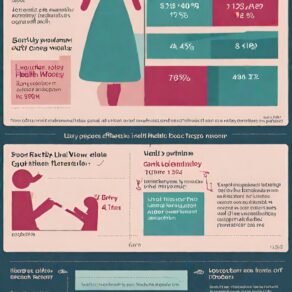In the ongoing discourse surrounding abortion, one of the central concerns is its impact on women’s health. Despite being a topic of significant importance, the conversation is often clouded by misinformation, stigma, and ideological agendas. To shed light on how does abortion affect women’s health, we delve into the nuanced effects of abortion on women’s health, separating fact from fiction.
Table of contents
Unveiling the Realities
Abortion remains a polarizing subject, with arguments from both sides often rooted in emotion rather than evidence. However, when exploring its impact on women’s health, it is crucial to rely on scientific research and empirical data. By addressing common misconceptions and providing comprehensive insights, we aim to foster a more informed discussion.
The Physical Health Perspective
One of the prevailing myths surrounding abortion is that it poses substantial risks to women’s physical health. However, numerous studies have debunked this notion. According to research published in reputable medical journals such as The Lancet and the American Journal of Public Health, legal abortion performed under proper medical conditions is a safe procedure with minimal complications. In fact, the risk of maternal mortality associated with childbirth is significantly higher than that of abortion.
Furthermore, complications arising from abortion are rare and usually minor, including temporary discomfort, bleeding, or infection. Serious complications occur in less than 0.5% of cases and are often related to the gestational age of the pregnancy and the method used. It is essential to emphasize that the risk of complications increases when abortion is performed under unsafe conditions, highlighting the importance of access to legal and regulated abortion services.
The Mental Health Aspect
Another widely debated issue is the impact of abortion on women’s mental health. While some argue that abortion leads to long-term psychological distress, extensive research suggests otherwise. Studies conducted by organizations such as the American Psychological Association and the Royal College of Obstetricians and Gynaecologists have found that the majority of women do not experience adverse psychological effects after having an abortion.
Moreover, the decision to terminate a pregnancy is often a complex and deeply personal one, influenced by various factors such as socioeconomic status, relationship status, and existing support systems. For many women, abortion can be a relief from unwanted pregnancy and can contribute to improved mental well-being by alleviating feelings of anxiety, stress, and uncertainty about the future.
Frequently Asked Questions
Research indicates that legal abortion performed by trained professionals does not increase the risk of infertility. Complications leading to infertility are rare and primarily associated with unsafe abortion practices.
Numerous comprehensive studies have found no causal relationship between abortion and an increased risk of breast cancer. This misconception stems from flawed research and has been debunked by leading medical organizations worldwide.
The majority of women who choose to have an abortion do not regret their decision in the long term. Studies consistently show that feelings of relief and empowerment are more common among women post-abortion than regret or sadness.
Legal abortion does not have a significant impact on future pregnancies. Complications arising from abortion are rare and unlikely to affect fertility or the ability to carry a pregnancy to term.
Conclusion: Promoting Informed Dialogue
In conclusion, how does abortion affect women’s health
is a multifaceted issue that warrants nuanced consideration. While it is essential to acknowledge individual experiences and perspectives, it is equally crucial to base discussions on scientific evidence and empirical data. By dispelling myths, addressing common misconceptions, and providing accurate information, we can promote informed dialogue and support policies that prioritize women’s health and reproductive rights.





